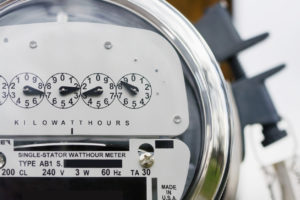No disrespect to Punxsutawney Phil, but here’s a more realistic winter forecast: When it’s cold outside, utility company impostors turn up the heat — angling for your money.
The biggest scam is the longtime shutoff swindle, which is reaching record levels this season in some parts of the country. Posing as local utility company personnel, fraudsters call homeowners and small-business owners, claiming that their gas or electric account is delinquent and that service will be shut off within hours if not settled immediately. The usual request is for payment by prepaid debit cards such as Green Dot MoneyPak, which provides quick cash that’s difficult to trace — or get back. That payment method may raise eyebrows (and more customers are getting wise to this ruse), but callers can be convincing, often citing customer names, addresses and other information about their utility accounts.
Ways to save, expert investment advice, scam alerts and more! — AARP Money Newsletter »
Other utility impostor scams on the rise, typically spiking in Northern states during peak heating season and in Southern states when air-conditioning demand is greatest, include:
- Bogus emails: These appear to come from the local utility company, with wording such as “important account information,” or alerts that utility bills are ready to be viewed online. When recipients click on an embedded link for details, their computers are infected with malware.
- Automated robocalls: Warning of impending service shutoff (instead of bread-and-butter “live” calls), these calls not only spoof the legitimate company’s name on the recipient’s caller ID but also convincingly mimic its automated voice phone system. Frightened customers are provided a toll-free callback phone number, hearing interactive voice-response prompts that imitate those of the actual utility before reaching fraudulent customer service reps who solicit “owed” payment and personal information. Another callback con: robocalls claiming that utility customers are entitled to a prize or rebate, which is merely a move to glean personal information or get financial account details under the guise of “shipping and handling” for the prize or a direct deposit of the supposed rebate.
- Meter cheaters: A fast-growing scheme, this involves fake utility workers (who may have self-made badges and rented uniforms) showing up unannounced, claiming that service meters need to be repaired or replaced and that up-front payment is required in cash or prepaid debit card.
- Inspection deception: Alleging an emergency service call in your area or free energy audit, these swindlers (often arriving in pairs) arrive unexpectedly, trying to get inside homes for a distraction burglary — one leads you to your furnace while the partner quickly pilfers. Or they may be salespeople, claiming to be utility employees, trying to sell expensive (and often unnecessary) “energy-saving” products and services.
What to know to protect yourself:
- Although some legit utilities accept prepaid debit cards for payment, many do not — and none demand it. Reloadable prepaid debit cards are preferred by scammers because they are the equivalent of sending cash; the criminals persuade targets to load cash onto the cards (easily purchased at retail outlets) and then provide the card numbers to transfer funds to their own prepaid debit cards (typically opened under stolen identities) to make purchases or ATM withdrawals.
- If you really have an outstanding balance, you’ll be mailed at least one written notice, if not several, before service is terminated. Utility companies don’t initially telephone, threatening immediate shutoff.
- Service on meters or inside the home is usually prearranged and typically initiated by customers. If there’s a charge for work on customer-owned equipment, costs are included on the monthly bill, not requested up-front.
- Keeping tabs on when your payments post takes the guesswork out of impostor claims, but when in doubt, call the toll-free number listed on past bills or on your provider’s website — not any number provided in live or automated phone calls.
- Call blockers like NoMoRobo can help prevent bogus robocalls; it’s available to customers of these VoIP service providers, but it doesn’t work with analog landlines.
For information about other scams, sign up for the Fraud Watch Network. You’ll receive free email alerts with tips and resources to help you spot and avoid identity theft and fraud, and gain access to a network of experts, law enforcement and people in your community who will keep you up to date on the latest scams in your area.
Photo: iStock/Epantha
Also of Interest
- 8 easiest (and no-cost) steps for a scam-free 2017
- New uptick in government scams post-election
- Get help: Find out if you’re eligible for public benefits with Benefits QuickLINK
- Join AARP: Savings, resources and news for your well-being
See the AARP home page for deals, savings tips, trivia and more.















